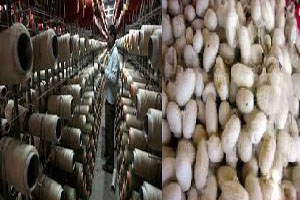
Uttar Pradesh likely to get its maiden silk research centre
YarnsandFibers News Bureau 2017-06-19 16:00:00 – GorakhpurUttar Pradesh likely to get its first regional silk research centre as the state looks to meet the demands of its weaver community and raise its share in the national production. According to Central Silk Board Chairman K M Hanumantharayappa, an acre of mulberry sericulture has a potential to generate a gross income of more than Rs 1 lakh per year, which could be higher than the returns obtained from most agricultural crops.
Despite good quality of cocoons, the UP’s share in overall production at the national level is barely three percent — at around 270 metric tonne. Their endeavour is to take this to at least 15-20 percent for which they are planning to establish regional silk research centre in Gorakhpur. This will be the first of its kind in UP.
Besides, establishment of cocoon market is a must. For the want of an organised marketing support, the state’s farmers sell their cocoon to West Bengal and Karnataka at low prices. For meeting the domestic demand of weaving clusters such as Varanasi, quality silk production should be increased.
Comparing Uttar Pradesh with other states, UP has good water supply however, awareness level among the farmers is low, the market is relatively small and the size of farm land holding is also smaller compared to other states.
He further added that Krishi melas are being organised on a large scale in order to popularise sericulture in rural areas of the state. Sericulture will definitely help farmers augment their income.
The women farmers in rural areas may be identified and trained in various activities of sericulture. In UP, there are different types of sericulture prevalent like the Tasar culture is a subsidiary occupation of the tribals living in south UP. Chandauli, Sonbhadra, Lalitpur and Fatehpur are the major districts identified for tropical Tasar. While Eri culture is practised in Kanpur, Kanpur Dehat, Jalaun, Hamirpur, Chitrakoot, Banda and Fatehpur districts. There is a vast potential in this sector.
The Silk Board Chairman stressed on establishment of Multi-end Reeling Machines (MRM) and said the government will make efforts to provide these machines to entrepreneurs at a subsidised rate after imparting them proper training.
There are 170 government silk farms in the state and a proposal has been sent to the state government for installing the automatic reeling machines. Superior yarn produced thereon will replace the imported yarn. They are also planning to arrange awareness visits to such machines.
Market Intelligence
Ask for free sample Report

experience
Customer Base
dedicated team
Countries Served Worldwide









